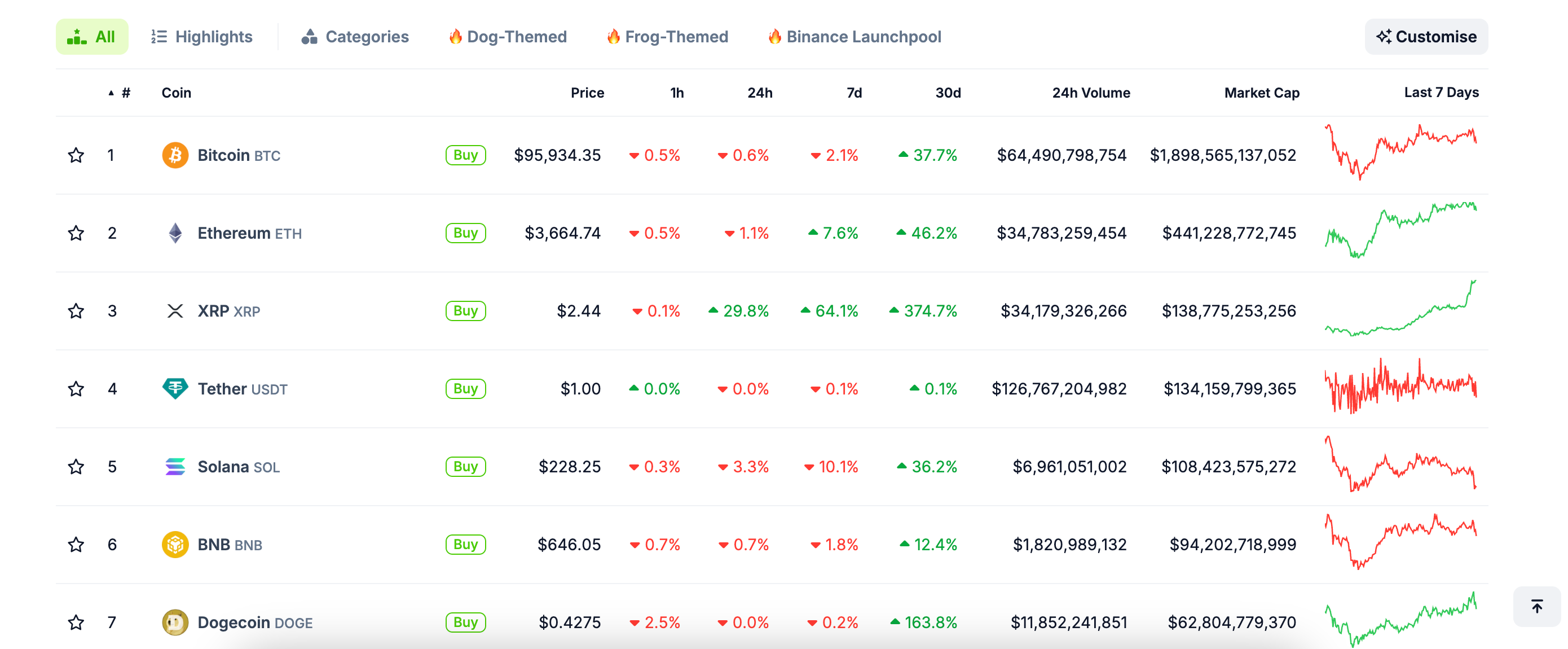The Reserve Bank of India (RBI), the country’s central bank, is finalizing the rollout of the retail digital rupee pilot, the Economic Times of India (ETI) reported on Nov. 19.
The RBI initiated the wholesale central bank digital currency (CBDC) pilot on Nov. 1 to test its usage in settling transactions in government securities. At the time, the RBI had said that the retail digital rupee pilot would be launched within a month.
According to the ETI report, the digital rupee is meant to complement, rather than replace, existing payment methods. Additionally, the report noted that the retail CBDC had been designed to be interoperable with current payment systems, citing sources familiar with the matter.
The report noted that the CBDC platform will be hosted by the National Payments Corporation of India (NPCI) and will be similar to the NPCI’s unified payments interface (UPI) system.
UPI has emerged as a popular payment method in India, enabling users to instantly transfer funds directly to and from bank accounts through a UPI address. The UPI addresses, similar to email addresses, are linked to the bank accounts.
An anonymous source with knowledge of the project told ETI:
“Just like we have a common library for UPI, the technology for CBDC is similar to that and it is being hosted by NPCI, it will be interoperable with the current payment platforms.
The e-rupee will be stored in a wallet, the denominations will be available as per the customer’s request, just like you request cash from an ATM. Banks are launching this only in select cities.”
The RBI wants each bank participating in the pilot to test the retail CBDC among 10,000 to 50,000 users, per the ETI report. The banks participating in the retail CBDC pilot include State Bank of India, Bank of Baroda, ICICI Bank, Union Bank of India, HDFC Bank, Kotak Mahindra Bank, Yes Bank, and IDFC First Bank. According to the report, the CBDC project will eventually be extended to the entire banking system.
The banks participating in the CBDC trial have partnered with last-mile payment service providers, including PayNearby and Bankit, to enable users to pay merchants with the digital rupee.
The retail CBDC will be provided as a standalone product in the initial phase. However, the digital rupee will eventually be integrated with existing mobile and internet banking services.
Merchants and customers selected to participate in the pilot will be required to download a wallet application, which will be used to store the e-rupee, as per the report. In addition, users will need to request specific denominations of the e-rupee from their banks, which will be transferred to their CBDC wallet.
Read More: cryptoslate.com









 Bitcoin
Bitcoin  Ethereum
Ethereum  Tether
Tether  XRP
XRP  Solana
Solana  Dogecoin
Dogecoin  USDC
USDC  Cardano
Cardano  Lido Staked Ether
Lido Staked Ether  Avalanche
Avalanche  TRON
TRON  Shiba Inu
Shiba Inu  Toncoin
Toncoin  Stellar
Stellar  Wrapped stETH
Wrapped stETH  Polkadot
Polkadot  Wrapped Bitcoin
Wrapped Bitcoin  Chainlink
Chainlink  WETH
WETH  Bitcoin Cash
Bitcoin Cash  Sui
Sui  Hedera
Hedera  Litecoin
Litecoin  Pepe
Pepe  LEO Token
LEO Token  NEAR Protocol
NEAR Protocol  Uniswap
Uniswap  Wrapped eETH
Wrapped eETH  Aptos
Aptos  Internet Computer
Internet Computer  USDS
USDS  Cronos
Cronos  Ethereum Classic
Ethereum Classic  POL (ex-MATIC)
POL (ex-MATIC)  Artificial Superintelligence Alliance
Artificial Superintelligence Alliance  Ethena USDe
Ethena USDe  Bittensor
Bittensor  Render
Render  Filecoin
Filecoin  Algorand
Algorand  Arbitrum
Arbitrum  Dai
Dai  WhiteBIT Coin
WhiteBIT Coin  Cosmos Hub
Cosmos Hub  Stacks
Stacks  Celestia
Celestia  OKB
OKB